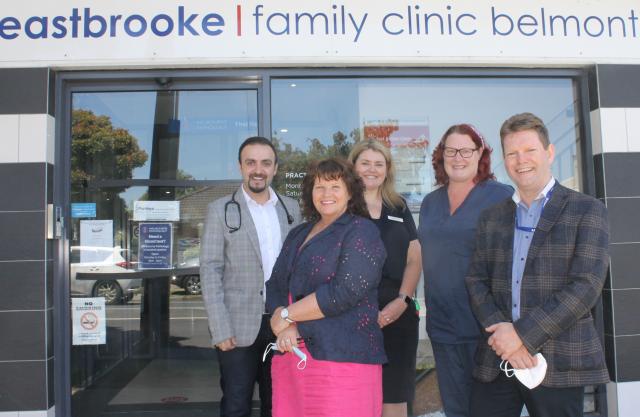Geelong’s new Priority Primary Care Centre (PPCC), where residents can access free urgent medical care, opened early this month.
The PPCC, in Belmont, is a GP-led service for people seeking access to urgent medical care that do not need hospital care.
“Eastbrooke is delighted to take a leadership role in the establishment and operation of the Geelong PPCC,” Director of Eastbrooke Medical Centres Andrew de Picot said.
“We look forward to working collaboratively with our key stakeholders in delivering this new service to our local community.”
Eastbrooke Family Clinic Belmont is operating the PPCC, which is within the existing Eastbrooke Health Hub site at 75 Roslyn Road, Belmont.
The PPCC is open seven days per week from 11am to 9pm. The service is free, and patients do not require an appointment.
The Belmont centre is one of 25 PPCCs announced for Victoria as part of an initiative by the Victorian government to offer care for people with conditions that require urgent attention but not an emergency response. The service is funded through Western Victoria Primary Health Network (WVPHN).
Barwon Health CEO Frances Diver said the addition of a new service that provides more primary care and enhanced GP access was welcome.
“Barwon Health will work with Eastbrooke Family Clinic Belmont to enable appropriate referrals to our services including the emergency departments,” she said.
The facility will be staffed by a team of GPs and nurses, and patients will be triaged on arrival to determine their suitability for the service.
The PPCC will treat patients with urgent conditions like lacerations or cuts requiring stitches, basic fractures, minor burns, rashes, ear nose and throat infections, other infections, and gastroenteritis.
Patients requiring non-urgent regular medical care will be redirected to their regular GP for ongoing management.
WVPHN CEO Rowena Clift said the holiday season usually sees higher numbers of people attending hospital emergency departments, so opening the PPCC in Geelong in early January would take some of that pressure off emergency departments.
Patients experiencing an emergency or life-threatening conditions should still attend a hospital emergency department. This includes conditions such as severe breathing difficulties leaving the person unable to speak, stroke symptoms, anaphylaxis, significant
bleeding, deep or large burns, and major breaks or major fractures.
Deakin University will lead a study to evaluate the impact of the new service on the demand for other services including general practice and emergency departments.









